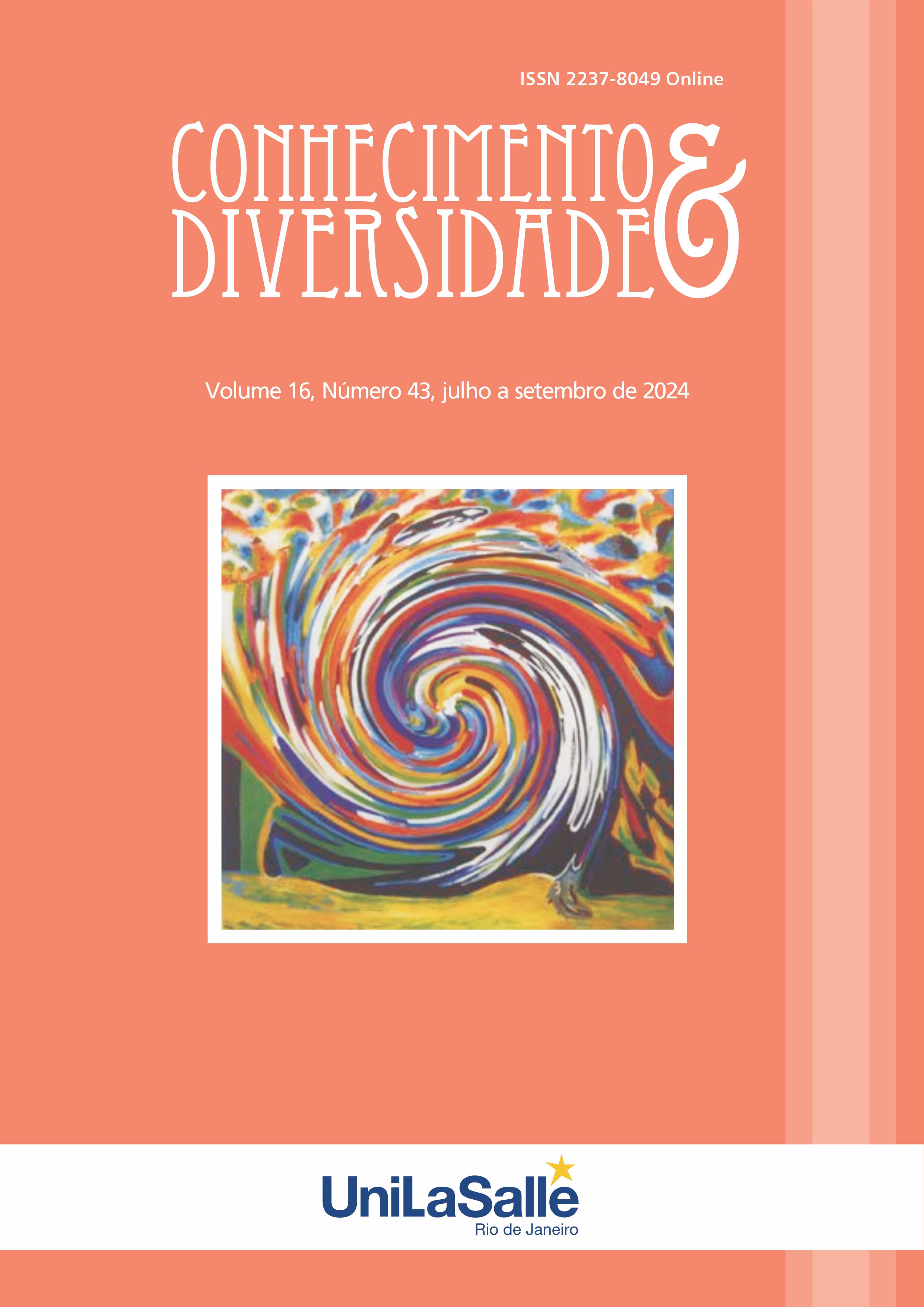IS SCHOOL AUTONOMY EFFECTIVE FOR SUSTAINABLE ACADEMIC ACHIEVEMENT?
PISA EXAM SAMPLE
DOI:
https://doi.org/10.18316/rcd.v16i43.11916Keywords:
Autonomous management, Sustainable academic success in schools, Comparative analysis of OECD countries, Evaluation of PISA resultsAbstract
This study compares whether there is a significant difference between the PISA averages of countries with strong school autonomy and countries with weak school autonomy. The study is a mixed research method study. The study group was selected from OECD countries with strong and weak school autonomy using a counter-sampling technique. The five OECD countries with the strongest school autonomy are Finland, Netherlands, Czech Republic, UK and Estonia. The five OECD countries with the weakest school autonomy are France, Spain, Greece, Turkey and Mexico. In all PISA exams between 2006 and 2022, there is a significant difference (p<.05) between countries with strong school autonomy and countries with weak school autonomy in the mean scores of math, science and reading. In countries with strong school autonomy, the levels of school self-determination and parental involvement in lifelong learning activities are higher than the OECD average. Countries with weak school autonomy, this rates are below the OECD average. In countries with strong school autonomy, teacher-administration collaboration, teamwork in school, student monitoring, and teacher participation in professional development activities are mandated by school management or required by law.
References
Aypay, A. (2021). Research methods design and analysis. Ankara: Anı Publishing.
Balcı, A. (2013). Scientific research method. Ankara: Pegem A Publishing.
Briggs, K.L., & Wohlstetter, P. (2003). Key elements of a successful school-based management strategy. School Effectiveness and School Improvement, 14(3), 351-372. https://www.tandfonline.com/doi/abs/10.1076/sesi.14.3.351.15840
Burns, T., & Köster, F. (2016). Governing education in a complex world, educational research and innovation. Paris: OECD Publishing. http://dx.doi.org/10.1787/9789264255364-en
Brown, B.R., & Cooper, G.R. (2000). School-based management: how effective is it? NASSP Bulletin, 84(616), 77- 85.
Burns, L.T., & Howes, J. (1988). Handing control to local schools. Education Digest. 54(3), 6-9. https://www.proquest.com/openview/8830bb760faa69609ba66ac19a2101c2/1.pdf?pq-origsite=gscholar&cbl=25066
Caldwell, B.J. (2005). School-based management: educational policy series. Paris: UNESCO Pub.
Cheng, Y.C. (1996). School based decision-making and management, school – effectivenes and school-based management: a mechanism for development. London-Newyork-Philadelphia: The Falmer Press.
Cotton, K. (1992). School-based management. Portland: School improvement research series. http://www.nwrel.org/scpd/sirs/7/topsyn6.html
David, J.L. (1989). Synthesis of research on school-based management. Educational Leadership, 46(8), 45- 53. https://eric.ed.gov/?id=EJ388744
Eurostat. (2024). Databases. https://ec.europa.eu/eurostat/data/database
Gamage, D.T., Sipple, P., & Partridge, P. (1996). Research on school based management in victoria. Journal of Education Administration, 34(1). https://www.emerald.com/insight/content/doi/10.1108/09578239610107147/full/html
Gertler, P., Patrinos, A. H., & Rubio-Codina, M. (2007). Methodological issues in the evaluation of school- based management reforms. https://citeseerx.ist.psu.edu/document?repid=rep1&type=pdf&doi=71e8b1630aba1949383cfa5826bd770248b15eac
Hesse-Biber, S.N., & Leavy, P. (2008). Introduction: Pushing on the methodological boundaries: The growing need for emergent methods within and across the disciplines. In S. N. Hess-Biber & P. Leavy (Eds.), Handbook of emergent methods (pp. 1-15). New York: Guilford.
Keddie, A. (2015). School autonomy as ‘the way of the future’: issues of equity, public purpose and moral leadership. Educational Management Administration and Leadership, 44(5). https://journals.sagepub.com/doi/abs/10.1177/1741143214559231
Mulford, B., Edmunds, B., Kendall, L., Kendall, D., & Bishop, P. (2008). Successful School principal ship, evaluation and accountability. Leading & Managing 14(2): 19-44 https://www.researchgate.net/publication/276886132_School_autonomy_as_'the_way_of_the_future'
Neeleman, A. (2019). The scope of school autonomy in practice: An empirically based classification of school interventions. Journal of Educational Change, 20, 31-55. https://link.springer.com/article/10.1007/s10833-018-9332-5
OECD. (2018). Education at glance. https://www.oecd-ilibrary.org/education/education-at-a-glance-2018_eag-2018-en
OECD. (2018). Table D6.1. See Source for more information and Annex 3 for notes. http://dx�doi�org/10�1787/eag- 2018-36-en
OECD. (2022). Education at glance. https://www.oecd-ilibrary.org/education/education-at-a-glance-2022_3197152b-en
Odden, E.R., & Wohlstetter, P. (1995). Making school-based management work. Educational Leadership, 52(5), 32-36. https://eric.ed.gov/?id=EJ497534
Özdemir, S. (2022). Organizational innovation in education. Ankara: Pegem A Publishing.
Özden, Y. (2000). New values in education. Ankara: Pegem A Publishing.
PISA. (2006). Data. https://www.oecd-ilibrary.org/docserver/9789264040151-en.pdf?expires=1721063143&id=id&accname=guest&checksum=B17C8881E2C397CFA3D67874AA9EC877
PISA. (2009). What students know and can do? https://www.oecd-ilibrary.org/docserver/9789264040151-en.pdf?expires=1721063143&id=id&accname=guest&checksum=B17C8881E2C397CFA3D67874AA9EC877
PISA. (2012). Snapshot of student performance in mathematics, reading and science. https://www.oecd.org/content/dam/oecd/en/about/programmes/edu/pisa/publications/national-reports/pisa-2012/PISA-2012-results-snapshot-Volume-I-ENG.pdf
PISA. (2015). Excellence and equity in education. https://www.oecd-ilibrary.org/docserver/9789264266490-en.pdf?expires=1721063731&id=id&accname=guest&checksum=C6DB75D208D67A376DE2E54B37BA54A2
PISA. (2018). What students know and can do? https://www.oecd-ilibrary.org/docserver/5f07c754-en.pdf?expires=1721063912&id=id&accname=guest&checksum=1979FCF2593E117EE989674438EFBDFD
PISA. (2022). The sate of learning and equity in education. https://www.oecd.org/en/publications/2023/12/pisa-2022-results-volume-i_76772a36.html
Saarivirta, T., & Kumpulainen, K. (2016). School autonomy, leadership and student achievement: reflections from Finland. International Journal of Education Management, 30(7). https://www.emerald.com/insight/content/doi/10.1108/IJEM-10-2015-0146/full/html
Squires, D.A., & Kranyik, R.D. (1995). The comer program: Changing school calture. Educational Leadership, 53(4), 29-30. https://eric.ed.gov/?id=EJ517889
Şimşek, H., & Yıldırım, A. (2020). Qualitative research methods. Ankara: Nobel Publishing.
Şişman, M. (2022). Organizations and cultures. Ankara: Pegem A Publishing.
Woessmann, L., Luedemann, E., Schuetz, G., & West, M.R. (2009). School accountability, autonomy and choice around the world. Cheltenham, UK: Edward Elgar.
Wohlstetter, P. (1995). Getting school based management right: What works and what doesn’t. https://www.jstor.org/stable/20405479
Downloads
Published
Issue
Section
License
Copyright (c) 2024 İbrahim Çankaya, Servet Balıkçı

This work is licensed under a Creative Commons Attribution 4.0 International License.
As recommended by the Public Knowledge Project, RCD adopts for its articles a CREATIVE COMMONS Attribution CC BY 4.0 license.
This license allows others to distribute, remix, adapt and build upon your work, even commercially, as long as they credit you for the original creation.
This is the most appropriate license offered.
Recommended for maximum dissemination and use of licensed materials.



